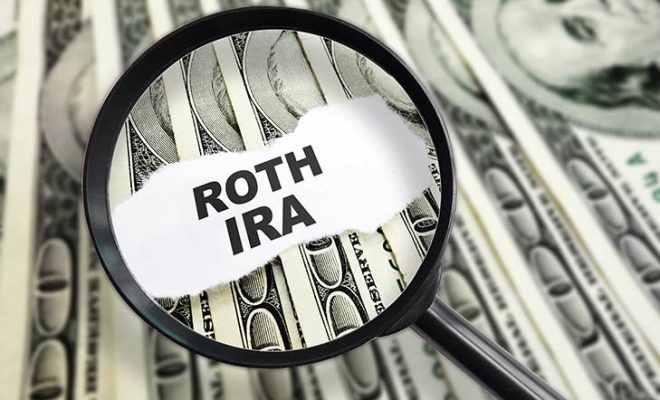Traditional and Roth IRA Early Withdrawal Penalties

A lot of people say and believe that rules are meant to be broken. But more often than not, when you break a rule, there is a price to pay. Individual Retirement Accounts (IRAs) have rules, and breaking those rules comes with a price. This price is usually in the form of an early withdrawal penalty.
An IRA is meant to be a long-term investment vehicle that can help you save for your retirement years. Taking money out too soon goes against its purpose. Still, life has its own rules. Sometimes you may face a financial emergency that forces you to withdraw funds from the account you were carefully reserving for your retirement.
That is why it is important to understand what lies ahead in terms of penalties. If you withdraw from an IRA before the age of 59½, you could face an early withdrawal penalty on the amount withdrawn. Understanding these traditional and Roth IRA early withdrawal penalty rules can help you make better decisions if you ever find yourself in a financial crunch and need to withdraw your money sooner than you planned.
What are the penalties for making an early Traditional IRA withdrawal?
If you take money out of your Traditional IRA before you turn 59½, the IRS will impose a penalty. You will need to pay regular income tax on the amount you withdraw, plus a 10% early withdrawal penalty. This is not all. Depending on where you live, your state might also charge a penalty or tax. So, you would take a double hit from the state and the federal government.
But the Internal Revenue Service (IRS) does make a few exceptions. So, if your withdrawal meets certain conditions, you may be able to avoid the 10% penalty. For instance, if you are using the money to buy your first home, you can withdraw up to $10,000 without facing a penalty. If you have lost your job and are struggling to afford health insurance premiums, your IRA can help you cover the costs without penalties. The same goes for covering life-changing events, such as the birth or adoption of a child. You can take out up to $5,000 for that.
Additionally, if you or your children need help paying for tuition, fees, or books, your IRA can come to the rescue. The same applies in unfortunate circumstances like disability or terminal illness. In those cases, the IRS will allow you to access your own money without any penalties. Similarly, certain unreimbursed medical expenses that exceed a set percentage of your income can also qualify for a penalty-free withdrawal.
That said, remember that avoiding the penalty does not mean that you will not owe taxes. You will still owe regular income tax on whatever amount you take out since Traditional IRA contributions are made pre-tax. So, early withdrawals will affect your overall financial situation and increase your tax liabilities for the year you withdraw the money. This is something you need to pay attention to. Consider talking to a financial advisor before making any decision.
What are the penalties for making an early Roth IRA withdrawal?
A Roth IRA gives you more flexibility when it comes to your withdrawals. Since the taxes are already paid, the government does not really interfere in your business as much as it does in the case of a Traditional IRA. You can take out the money you have contributed to the account at any time and for any purpose without paying taxes or a Roth IRA early withdrawal penalty. However, things are different for earnings and conversions.
Now, if you want to withdraw money entirely tax and penalty-free, the IRS calls that a qualified distribution. To qualify for this distribution, your Roth IRA must be at least five years old, and your withdrawal must meet one of the following conditions:
- You are at least 59½ years of age
- You are using the money to buy your first home up to $10,000
- You have become disabled
- The withdrawal is made after your death
If you have converted funds from a Traditional IRA to a Roth IRA, those conversions can also be withdrawn tax and penalty-free, provided they have been in the Roth for at least five years. And if you have made multiple conversions, each one comes with its own five-year clock.
But if you do not meet these conditions, the IRS has a specific order for treating withdrawals. It first considers your contributions, then your conversions, and finally, your earnings. Here’s how this works:
- Contributions are always tax and penalty-free.
- Conversions might face a 10% penalty if they have not aged for five years.
- And earnings can be hit with both taxes and a 10% penalty if you withdraw them early.
That said, there are exceptions. You may avoid the Roth early withdrawal penalty if the money drawn is used for qualified education expenses, disability, birth or adoption expenses up to $5,000, certain medical bills, a first-time home purchase, terminal illness, or if you are unemployed and using the money for health insurance premiums. If you qualify for an exception, you will need to file IRS Form 5329 to claim it. A financial advisor can help you avoid the early distribution penalty for a Roth IRA.
Do loans also result in a Traditional or Roth IRA withdrawal penalty?
When it comes to loans, the rules are a bit different. Unlike a 401(k), you can’t actually borrow money from your Traditional or Roth IRA. But there is a provision, known as the 60-day rollover rule, that can act as a loan and come to your rescue in your hour of need. Here’s how it works:
You can take money out of your IRA and use it for anything you want, as long as you put that exact amount back into an IRA. Now, you need to do this within 60 days of the withdrawal to avoid a Traditional or Roth early withdrawal penalty. If you manage to return the full amount in time, the IRS will not count it as a withdrawal, and you will not face taxes or penalties.
But if you miss the deadline and do not put the money back into the account within the 60-day mark, the IRS will treat the amount you withdrew as a distribution. This is an important rule to remember as the IRS does not grant exceptions for delays of even a single day. So, you will owe income tax on the money drawn, and if you are under 59½, you will also face the 10% early withdrawal penalty.
Another detail to note is that your IRA provider might automatically withhold 10% of the withdrawal for taxes unless you specifically tell them not to. So, if you take out $10,000, you may only receive $9,000, but when you return the money, you will still have to deposit the full $10,000 to avoid taxes and penalties. So, you will need to find that extra 10% elsewhere.
Also, you can only use the 60-day rollover once every 12 months per person, not per account. Hence, keep in mind that the rule does not reset for each IRA. So, while you may be able to withdraw your IRA funds temporarily, it is definitely not a traditional loan. If you need one, you would be better off considering other options, such as bank loans, credit cards, home equity, or even borrowing from your 401(k).
Does it make sense to pay the Traditional or Roth IRA early withdrawal penalty if you really need the funds?
While paying a Traditional or Roth early withdrawal penalty is far from ideal, sometimes life may leave you with little choice. You could find yourself in a situation where tapping into your retirement funds may seem like the only solution. For instance, if you are retiring early — say, in your late 40s or early 50s — and need funds to cover your expenses, withdrawing from your IRA might make sense, even with the penalty. But remember, this is not just about the 10% penalty. You will also owe regular income tax on withdrawals from a Traditional IRA, since that money has not been taxed yet. So, the total cost can be significantly higher than you expect once taxes are added.
If you have a Roth IRA, you can withdraw your contributions at any time without penalty or taxes, since you already paid tax on them. However, withdrawing your earnings before age 59½ and before the account has been open for at least five years triggers both income taxes and a 10% early withdrawal penalty.
Yes, there are exceptions where the IRS lets you withdraw early without penalty, such as for a first-time home purchase, medical expenses, and more. In those cases, using your IRA can make sense, as it would avoid the Traditional and Roth IRA withdrawal penalties. But in most others, it can hurt your long-term financial security. When you withdraw money early, your account balance decreases. The withdrawal amount shrinks your balance, and you end up losing any future compound growth. Even if you use the 60-day rollover rule, you still need to be very careful. Any misstep can cost you more than you would expect.
If you are facing a short-term financial crunch, it may make more sense to explore other options first. You could dip into an emergency fund, take a low-interest personal loan, or even borrow against home equity. If you are still working, you can consider picking up a few extra hours or looking for a side gig that could help you bridge the gap. Before taking any step, it is also essential to speak with a financial advisor. They can help you calculate how much you would really lose in taxes and penalties, and whether there is a smarter way to access the funds you need.
To do or not to do
If and when you decide to make an early withdrawal, it is important to understand both the pros and cons. Be clear about the rules and penalties so you know exactly what you stand to lose or gain. Keep in mind that these rules can change over time, so even if you are reading this article today and plan to make a withdrawal a year later, make sure to revisit the latest tax laws and regulations.
It is also wise to speak to a financial advisor before making any decision. They can provide the guidance you need to choose the most suitable option for your situation. You can use our advisor directory to connect with an advisor near you.
Explore alternatives, too. For instance, if you can take a loan, that might be better than dipping into your retirement funds. If you have an emergency fund, consider using that. If home equity makes more sense, opt for it. Most importantly, plan for your future expenses so you are not forced into such decisions unexpectedly and can avoid a Traditional or Roth IRA early withdrawal penalty at all costs.
Frequently Asked Questions (FAQs) about Traditional and Roth IRA early withdrawal penalty and taxes
1. What is the penalty and tax on early withdrawals?
If you withdraw funds from a Traditional or Roth IRA before age 59½, you will pay a 10% early withdrawal penalty, and the amount may also be subject to income tax. For Roth IRAs, you can withdraw your contributions anytime tax-free, but earnings withdrawn early may trigger both taxes and penalties.
2. Are there any exceptions to the penalty?
Yes. The IRS allows penalty-free withdrawals in specific circumstances, including:
- Up to $5,000 per child for qualified birth or adoption expenses.
- After the death of the IRA owner or participant.
- If the account holder becomes totally and permanently disabled.
- Up to $22,000 for individuals who experience an economic loss due to a federally declared disaster.
- For victims of domestic abuse, up to the lesser of $10,000 or 50% of the account balance (for distributions after December 31, 2023).
- Qualified higher education expenses for yourself, your spouse, or your children.
- Medical expenses exceeding 7.5% of your adjusted gross income, or health insurance premiums during unemployment, and a few more situations.
3. How do early withdrawals from a 401(k) work?
Early withdrawals from a Traditional 401(k) also attract a 10% penalty and income tax. However, there are some exceptions, such as permanent disability, medical issues, or qualified hardship withdrawals.
4. What should you do if you face a financial emergency?
Before touching your retirement savings, consider other options. Use your emergency fund if available, explore personal or home equity loans, or consult a financial advisor.
For further information on creating a suitable retirement plan for your unique financial requirements, visit Dash Investments or email me directly at dash@dashinvestments.com.
About Dash Investments
Dash Investments is privately owned by Jonathan Dash and is an independent investment advisory firm, managing private client accounts for individuals and families across America. As a Registered Investment Advisor (RIA) firm with the SEC, they are fiduciaries who put clients’ interests ahead of everything else.
Dash Investments offers a full range of investment advisory and financial services, which are tailored to each client’s unique needs providing institutional-caliber money management services that are based upon a solid, proven research approach. Additionally, each client receives comprehensive financial planning to ensure they are moving toward their financial goals.
CEO & Chief Investment Officer Jonathan Dash has been covered in major business publications such as Barron’s, The Wall Street Journal, and The New York Times as a leader in the investment industry with a track record of creating value for his firm’s clients.










